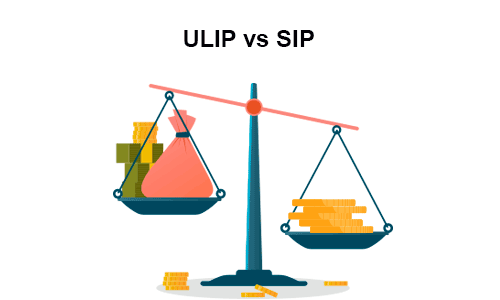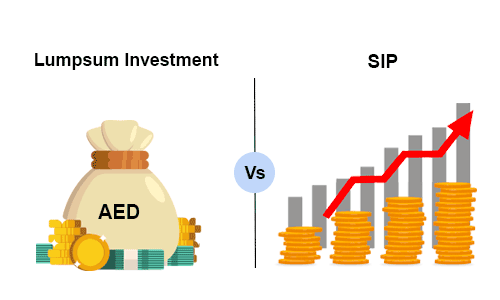Bonds vs Mutual Funds
When you step into the Indian financial market looking to invest your money, it is crucial to understand the key differences between the various investment options available to you.
One important comparison in this light is bonds vs mutual funds. While both of these options are excellent choices for investors, they significantly differ in their features and structure.
Bonds are effectively loans that you give to companies or the government — in return, you receive interest payments. On the other hand, mutual funds pool money from various investors to purchase a diversified portfolio of stocks, bonds, or other securities.
Table of Content
By clearly understanding the distinctions between bonds and mutual funds, you can make informed financial decisions that align with your goals and risk tolerance. In the following article, we will explore the characteristics of bonds vs mutual funds to help you decide which is the right investment avenue for you.
So scroll down to learn more and make the best choice for your financial future!
Bonds – Meaning and Advantages
When you buy a bond, you are essentially giving a loan to the issuer, who agrees to pay you back the principal amount when the bond matures. Bonds are fixed-income instruments with consistent returns.
In India, you can choose from different types of bonds such as government bonds, corporate bonds, and municipal bonds.
The benefits of investing in bonds include -
- Predictable and Stable Returns: Bonds usually pay interest twice a year, providing a steady income stream.
- Safety of Capital: If you hold onto your bonds until they mature, you will get back the entire principal amount, making bonds a safe way to invest.
- Diversification of Risk: Bonds can help you balance out the risks of owning stocks.
- Lucrative Interest Rates: Bonds often offer higher interest rates compared to savings accounts or fixed deposits.
- Capital Gain: If you sell your bonds for a higher price than what you paid, you make a profit called capital gain.
- Collateral for Loans: Some bonds, like government bonds, can be used as collateral when you apply for a bank loan.
Mutual Funds – Meaning and Advantages
Mutual funds are like a big pot where lots of different people put their money. This money is then used to buy a mix of things like stocks and bonds. A professional manager decides what to buy to make the most money for everyone.
There are different types of mutual funds, like equity funds which invest in stocks, debt funds which invest in bonds, and hybrid funds which invest in both.
Here are some benefits of mutual funds in India -
- Affordability: You don't need a lot of money to start investing in mutual funds. Some let you start with as little as INR 100 per month.
- Expert Management: Your money is managed by experts who know the market well and actively work to get the best returns.
- Disciplined Investment: Mutual funds help you develop a habit of regular investing. You can set up an automatic plan where a fixed amount is invested every month.
- Lower Costs: If you invest in mutual funds directly, you can save money on broker fees.
- Capital Appreciation: Over time, mutual funds have the potential to grow your money more than other investments like bonds or fixed deposits.
Mutual Funds Vs Bonds – Which is Better?
When considering bonds vs mutual funds as investment options, it's essential to understand the key differences –
| Aspects | Features |
|---|---|
| Income | Bonds provide fixed monthly income through interest payments, while mutual funds have varying returns based on market prices of underlying assets. |
| Liquidity | Bonds are less liquid due to small trading quantities in the secondary market. Mutual funds are more liquid, although they may have exit load costs and tax implications. |
| Cost of Investment | Bonds usually have no additional costs, while mutual funds charge fees for professional management. |
| Risk | Bonds are safer as they prioritise repayment to bondholders in case of the issuer's insolvency. Mutual funds are riskier due to market fluctuations. |
| Accessibility | Bonds are difficult to acquire directly, while mutual funds are easily available from Asset Management Companies (AMC) or distributors. |
| Diversification | Bonds offer limited diversification as they are a single type of asset. Mutual funds provide diversification by pooling money to invest in a range of assets. |
| Control | Bondholders have no control over how the borrowed money is used. Mutual fund investors give control to the fund manager to make investment decisions. |
| Flexibility | Bonds have less flexibility as they have a fixed term. Mutual funds offer more flexibility with options to switch between funds and adjust investment plans. |
Closing Thoughts
Both bonds and mutual funds are important investment options in the Indian financial market. The key differences between bonds vs mutual funds lie in their structure, risk profile, liquidity, costs, and potential returns. Bonds are generally considered safer with fixed returns, while mutual funds offer the potential for higher returns but come with higher risks.
Before making a decision, it's essential to carefully consider your financial goals, risk tolerance, and investment horizon. You should take time to weigh the pros and cons of each option and consult with a financial advisor to make an informed choice that aligns with your objectives.

More From Investment
- Recents Articles
- Popular Articles





.jpg)











.jpg)
.jpg)

















